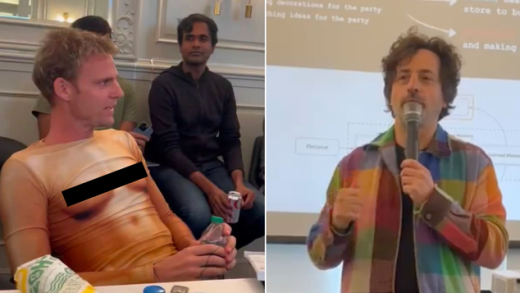Sometimes, it’s best to just log off.
That’s a lesson Facebook is learning the hard way on Tuesday.
During a Senate hearing on Tuesday where Facebook whistleblower Frances Haugen provided testimony on how the company’s platforms affect the wellbeing of young people. Facebook communications director, Andy Stone, decided to tweet responses to what Haugen was saying to the Subcommittee on Consumer Protection, Product Safety, and Data Security.
However, Stone’s remarks weren’t really directed at anything of substance that the Facebook whistleblower was saying about its algorithm or the company’s own internal studies that show the harm it causes.
And now he’s getting dunked on both over Twitter and at the Senate hearing.
Stone’s rebuttals were basically a reiteration of what Haugen did and didn’t do while at the company.
Tweet may have been deleted
“Just pointing out the fact that @FrancesHaugen did not work on child safety or Instagram or research these issues and has no direct knowledge of the topic from her work at Facebook,” tweeted Facebook’s communications director.
“As she herself just said under oath, ‘I don’t work on it.'” he continued.
In another tweet, Stone quoted Haugen’s own testimony when she was asked a question by Senator Amy Klobuchar (D-MN) about whether teens are Facebook’s most profitable users.
Tweet may have been deleted
“I’m sure they are some of the more profitable users on Facebook, but I do not work directly on them,” Haugen replied.
Stone emphasized “I do not work directly on them.”
Facebook’s Director of Policy Communications Lena Pietsch also put out an official Facebook statement. This too followed Stone’s line of defense: Attack Haugen’s credentials. It also goes a step further making note of how long she worked there and what information she would and wouldn’t be privy too.
Tweet may have been deleted
It is true that Frances Haugen did not work on child safety issues on Instagram. She never claimed to do so. Haugen’s role at Facebook was as a lead product manager on civic misinformation. She also says she worked on counter-espionage.
However, the documents that she provided to Congress and the Wall Street Journal detailing how Facebook’s platforms were “toxic” for teenagers was ostensibly conducted by experts in the field, the company’s own researchers. These documents were made available to everyone working at Facebook and is the basis for the hearing. All these additional side notes that Facebook is emphasizing in its response doesn’t undermine any of the information being discussed.
Haugen was very careful throughout the hearing to speak to what she had knowledge of at Facebook via her time working there and the documents she exposed. Stone’s focus on her truthful statements about what she did not have firsthand knowledge of is a bizarre defense strategy. And it’s one that got him eviscerated on Twitter.
Tweet may have been deleted
Tweet may have been deleted
Tweet may have been deleted
Tweet may have been deleted
Facebook’s communications director also got called out in real time by Senator Marsha Blackburn (R-TN) from inside the hearing.
Senator Blackburn read Stone’s tweets when she was made aware of them and invited him to “to step forward, be sworn in and testify before this committee.”
In subsequent tweets, Stone did point out that Facebook had offered “additional context” over the past few weeks on the leaked Facebook documents the platforms’ safety issues for teenagers. The Wall Street Journal followed Facebook’s response by publishing additional slides from the research documents that the company had left out of its rebuttal.
Stone also referenced the numerous times Facebook executives did provide testimony to Congress, including last week’s Senate hearing with Facebook’s global head of safety on this issue. However, oftentimes, as it was with last week’s hearing, Senators voiced frustration with the lack of answers Facebook’s representatives were able to provide.
Facebook and its employees certainly have the right to defend themselves. However, the defense strategy during the hearing did none of that. If anything, it only appears to have created more public relations headaches for a company that’s viewed more and more negatively by the public.
It’s been an especially rough few days for Facebook. The company suffered the largest outage in its history yesterday, essentially taking down all of Facebook’s products and costing it billions of dollars.
But the through line connecting the company’s many woes is that these issues are all self-inflicted. Facebook has no one to blame but itself.











